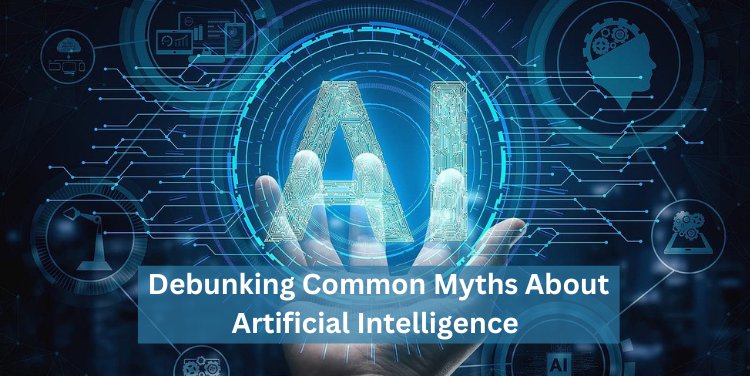Artificial Intelligence (AI) has captured the imagination of many, but along with fascination, it has also generated numerous myths and misconceptions. In this article, we'll debunk some of the most common myths surrounding AI, shedding light on the reality behind the hype.
Myth 1: AI will take over the world. Reality: While AI has the potential to revolutionize industries and augment human capabilities, the fear of a dystopian future where AI dominates humanity is unfounded. AI systems are created and controlled by humans, and their actions are limited by their programming. Ethical guidelines and regulations further ensure responsible AI development.
Myth 2: AI will replace all human jobs. Reality: While AI can automate certain tasks, it is unlikely to replace entire professions. Instead, AI is more likely to augment human capabilities, freeing up time for workers to focus on higher-value tasks that require creativity, empathy, and critical thinking.
Myth 3: AI is infallible and unbiased. Reality: AI systems are only as good as the data they are trained on. Biases present in training data can lead to biased AI outcomes. Additionally, AI systems can make mistakes or misinterpret information, especially in complex or ambiguous situations. Continuous monitoring and evaluation are essential to mitigate biases and improve AI accuracy.
Myth 4: AI can think and feel like humans. Reality: Despite advances in AI, current systems lack true consciousness and emotions. AI operates based on algorithms and data processing, lacking subjective experiences or self-awareness. While AI can mimic human-like responses in certain contexts, it does not possess consciousness or emotions.
Myth 5: AI development is only for tech giants. Reality: AI tools and resources are increasingly accessible, allowing individuals and organizations of all sizes to develop AI applications. Open-source libraries, cloud-based AI services, and educational resources enable widespread AI innovation and adoption across industries.
As AI continues to evolve, it's essential to separate fact from fiction. By debunking common myths about AI, we can foster a better understanding of its capabilities, limitations, and ethical considerations. With responsible development and thoughtful integration, AI has the potential to bring about positive transformations in society while addressing challenges and improving human well-being.







